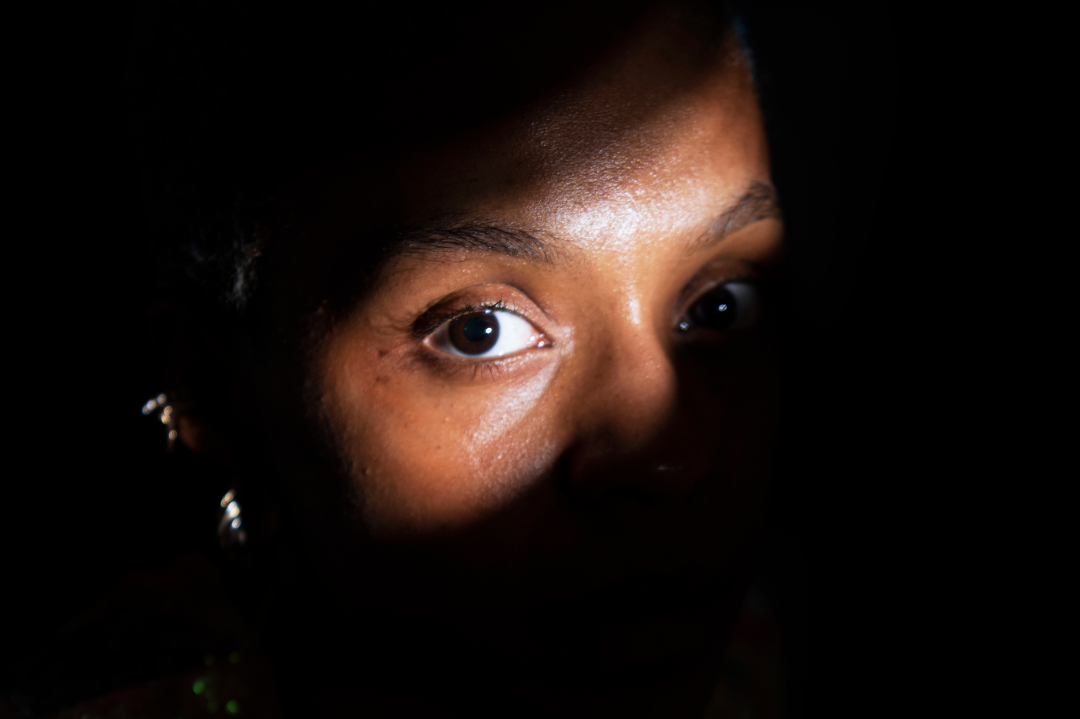Share This Story, Choose Your Platform!
The Impact of Trauma
Trauma
According to the American Psychological Association, trauma can be defined as an emotional response to a terrible event. The literature goes on to define trauma as a deeply disturbing event that infringes upon an individual’s sense of control and may reduce their capacity to integrate the situation or circumstances into their current reality. Others are of the opinion that trauma refers to one’s response to an event that psychologically overwhelms you while further definitions view trauma as an event that an individual views as being harmful or life threatening. Conversely, research suggests that an individual may experience trauma as a response to any event they find physically or emotionally threatening or harmful.
Trauma as a concept holds lasting suffering, shock, denial, pain, fear, uncertainty, and discomfort. One could believe that trauma is less about the event and more about how your mind and body responds. Not only that, but trauma has a powerful ability to hold on and follow us throughout our life journey. The definition of trauma is evolving in the mental health community and the overarching theme within the literature highlights a person’s psychological response to an event, or series of events, that threaten their physical or emotional safety, which can lead to difficulty coping and potentially persistent long-term mental and physical struggles.
Impact of Trauma
At times trauma can leave behind immeasurable traces clawing down on every aspect of one’s life. Conversely, minor scars left behind by trauma are nevertheless futile. As humans we are all unique and different, experiencing life through our distinctive lens and as such, it is only apt that we also experience trauma differently, thus trauma is personal. No one can know exactly how you feel about your experiences as we can all be affected differently by similar experiences.
Trauma can include events where you feel frightened, under threat, humiliated, rejected, abandoned, invalidated, unsafe, unsupported, trapped, ashamed, and/or powerless. Moreover, trauma and its effects are ubiquitous, affecting many areas of your life, including your emotional, social, and physical well-being. Trauma can show up as intrusive thoughts, avoidance, hypervigilance, triggers, changes in your worldview and beliefs about who you are, anger, anxiety, depression, issues with trust, and risky behaviours. Further physical signs can include, chronic pain, sleep problems, chest pain, and headaches.
The effects and subsequent impact of trauma is far reaching, potentially affecting not only the individual but their wider spheres of life. Research posits that there are different types of trauma – thoughts on the matter extend from psychological and emotional trauma; to big T and small t trauma; to acute, complex, chronic, and secondary trauma. At the end of the day trauma leaves behind scars, regardless of others’ opinion of the impact – how we experience the event determines how our mind and body responds. The impact of trauma is ultimately personal, it is determined by how your body reacts to the event. Will we experience shock and distress and recover after a short period of time, or will we be plagued by long term effects, persisting over time, and impacting our quality of life. Research suggests that the potential impact of trauma can be determined by looking at a plethora of factors, ranging from genetic predisposition to environmental exposure. Moreover, what, when, and how we experience trauma, post traumatic event, ought not to be quantified or categorised.
Trauma can occur at any age. It has particularly debilitating long-term effects on children’s developing brains, often referred to as adverse childhood experiences (ACEs). Childhood trauma can result from anything that disrupts a child’s sense of safety, including: an unstable or unsafe environment; separation from a parent; serious illness; intrusive medical procedures; sexual, physical, or verbal abuse; domestic violence; and/or neglect. Adults who experienced trauma in childhood are often “wired” differently than those who did not. Their brains, primed to deal with nearly constant stress, can struggle to respond appropriately to situations that would otherwise appear normal and non-threatening. Trauma can negatively impact areas in the brain responsible for cognitive functions, such as short-term memory and emotional regulation. This is due in part to the fact that the body regulates stress through the release of two critical hormones: cortisol and adrenaline. Exposure to these stress hormones plays an important role in keeping people safe during times of danger; however, repeated or prolonged exposure is associated with poor early childhood brain development. When childhood trauma is not resolved, a sense of fear and helplessness carries over into adulthood, setting the stage for further trauma. This partly explains why many adult trauma survivors struggle with depression, anxiety, and other issues related to emotional regulation. These resulting mental health issues can contribute to long-term difficulties in maintaining healthy relationships, and lead to problems at school and/or work.
Integrating Trauma
Even if your trauma happened many years ago, there are steps you can take to overcome the pain, learn to trust, connect with others again, rediscover yourself and regain your sense of emotional balance. The goal of trauma processing is to develop the skills to deal with the ways trauma manifests in your life so that the waves of panic, fear, or despair may begin to strike less often. Given that we all experience trauma and traumatic events differently, there is no clear one way fits all approach when it comes to integrating trauma into our daily existence. Integrating trauma is determined by an individual’s capacity and readiness to walk back and through the trauma in order to get past it. Through this, the individual would be allowing themselves the space to integrate the traumatic experience into their life story, thus granting themselves the chance to move forward in a meaningful way.
Individuals can work on integrating their trauma by collaboratively engaging in the counselling process with a qualified trauma counsellor. It is essential that you feel comfortable, respected, safe, and well understood in order for the counselling process to be successful. Importantly, integrating trauma does not mean that all of the bad will fade away, rather, integrating traumatic experiences means being able to acknowledge and accept the past while remaining centred and grounded in the present. Integrating trauma will allow you to gain the necessary resilience to conquer onward and upward.
Trauma counselling will provide a safe space where individuals can discuss their experiences within an empathetic supportive setting. Being able to recognise that you are in need of trauma counselling is of value to one’s mental health and well-being. Being able to identify how your trauma is manifesting emotionally, mentally, socially, and physically will help you to understand how best to take care of yourself. As with most things in life this process will take time – it is vital to be patient with yourself, be kind to yourself, and grant yourself the space and time to work through the bad days, to feel your feelings, and to process the difficult memories, as this will guide you to the point of integration. You will feel empowered to live life and to not allow the trauma to impair or control you.
“It takes enormous trust and courage to allow yourself to remember.”
― Bessel A. van der Kolk.
Author: Cherish Perks

Reference List
Van der Kolk, B. A. (2015). The body keeps the score: brain, mind, and body in the healing of trauma. New York, New York, Penguin Books.
American Psychiatric Association. (2013). Diagnostic and statistical manual of mental disorders (5th ed.).
Lange, B. C. L., Callinan, L. S., & Smith, M. V. (2019). Adverse Childhood Experiences and Their Relation to Parenting Stress and Parenting Practices. Community mental health journal, 55(4), 651–662. https://doi.org/10.1007/s10597-018-0331-z
Howe, M.L. (2023), Early Childhood Memories Are not Repressed: Either They Were Never Formed or Were Quickly Forgotten. Topics in Cognitive Science. https://doi.org/10.1111/tops.12636
Gold, A.L., Sheridan, M.A., Peverill, M., Busso, D.S., Lambert, H.K., Alves, S., Pine, D.S., and McLaughlin, K.A. (2016), Childhood abuse and reduced cortical thickness in brain regions involved in emotional processing. Journal of Child Psychology and Psychiatry, 57: 1154-1164. https://doi.org/10.1111/jcpp.12630
Teicher, M.H. and Samson, J.A. (2016), Annual Research Review: Enduring neurobiological effects of childhood abuse and neglect. Journal of Child Psychology and Psychiatry, 57: 241-266. https://doi.org/10.1111/jcpp.12507
Greenberg DM, Baron-Cohen S, Rosenberg N, Fonagy P, Rentfrow PJ (2018) Elevated empathy in adults following childhood trauma. PLoS ONE 13(10): e0203886. https://doi.org/10.1371/journal.pone.0203886
Hornor, Gail. (2015). Childhood Trauma Exposure and Toxic Stress: What the PNP Needs to Know. Journal of Pediatric Health Care. 29. 191-8. 10.1016/j.pedhc.2014.09.006.
Heather Dye (2018) The impact and long-term effects of childhood trauma, Journal of Human Behavior in the Social Environment, 28:3, 381-392, DOI: 10.1080/10911359.2018.1435328
Danese, A., & J Lewis, S. (2017). Psychoneuroimmunology of Early-Life Stress: The Hidden Wounds of Childhood Trauma? Neuropsychopharmacology: official publication of the American College of Neuropsychopharmacology, 42(1), 99–114. https://doi.org/10.1038/npp.2016.198
Cross, D., Fani, N., Powers, A., & Bradley, B. (2017). Neurobiological development in the context of childhood trauma. Clinical Psychology: Science and Practice, 24(2), 111–124. https://doi.org/10.1111/cpsp.12198
King-White, D. (2022). Childhood Trauma: Types, Causes, Signs, and Treatments. Choosing Therapy. https://www.choosingtherapy.com/childhood-trauma/
Morin, A. (2023). Understanding the Effects of Childhood Trauma. Very Wellman. https://www.verywellmind.com/what-are-the-effects-of-childhood-trauma-4147640
The National Child Traumatic Stress Network. (n.d.). Trauma Types. The National Child Traumatic Stress Network. https://www.nctsn.org/what-is-child-trauma/trauma-types
Ryder, G. (2022). What Is Trauma? PsychCentral. https://psychcentral.com/health/what-is-trauma
Mind. (2020). Trauma. Mind. https://www.mind.org.uk/information-support/types-of-mental-health-problems/trauma/about-trauma/
Trauma-Informed Care Implementation Resource Center. (2021). What is Trauma? Trauma-Informed Care Implementation Resource Center. https://www.traumainformedcare.chcs.org/what-is-trauma/#:~:text=Defining Trauma,-Trauma is a&text=It results from exposure to,%2For spiritual well-being.
Resnick, A. (2023). How to Heal from Trauma. Very WellMind. https://www.verywellmind.com/10-ways-to-heal-from-trauma-5206940
Kraybill, O. G. (2018). Trauma Processing: When and When Not? Psychology Today. https://www.psychologytoday.com/za/blog/expressive-trauma-integration/201804/trauma-processing-when-and-when-not
Krouse, L. (2022). Here’s What ‘Processing’ Trauma Really Means—And How It Helps You Heal. SELF. https://www.self.com/story/processing-trauma
Headroom. (2020). What Is Trauma Counselling? Headroom. https://headroom.co.za/what-is-trauma-counselling/
Valeri, C. (2022). Integrating Trauma. Healing Foundations Center. https://healingfoundationscenter.com/blog/integrating-trauma/


